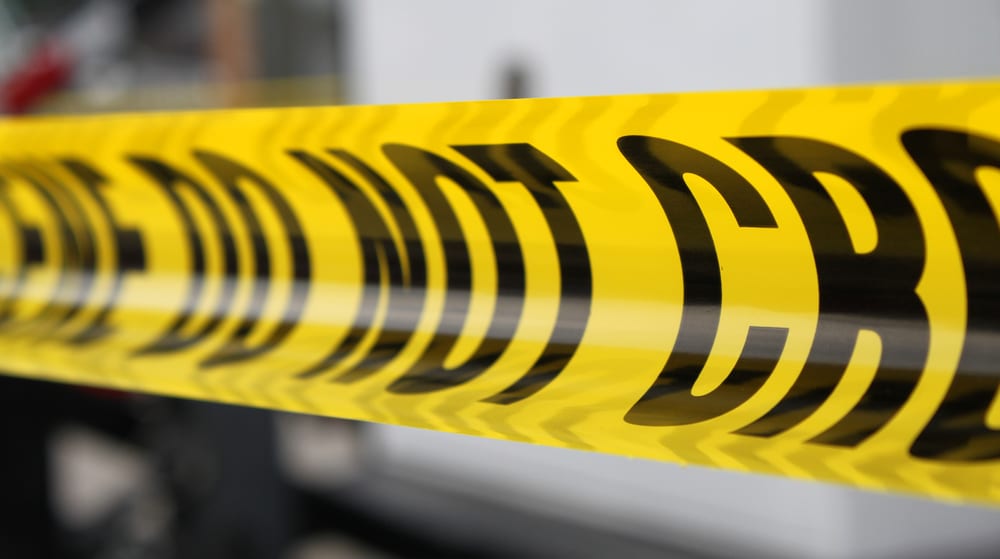Field jobs are generally dirty jobs. Techs encounter cramped spaces, ancient cobwebs, and years of accumulated dirt and grime on a daily basis. But how often are they dealing with blood and, ahem, body parts? For the brave and emotionally stable folks who choose crime scene cleanup as their profession, the answer is: daily.
The job is different than the typical field service job, and in some obvious ways it is, but in many respects it’s actually not all that different. Cory Chalmers, CEO of Steri-Clean Inc., a California-based crime scene cleaning service, said that when a death is called in, typically from either the police or property owner, an in-house dispatch team sends out the closest truck and cleaner team who then arrive onsite, provide an estimate and jump into the cleanup.
 Neal Smither, who runs San Francisco Bay Area-based Crime Scene Cleaners, also has an in-house dispatch team and a fleet of trucks and cleaners ready 24/7.
Neal Smither, who runs San Francisco Bay Area-based Crime Scene Cleaners, also has an in-house dispatch team and a fleet of trucks and cleaners ready 24/7.
“Dispatch has a script they follow, then they dispatch out whatever truck is free,” he said. “The cleaners go through some procedural stuff on-site and before entering the scene. Law enforcement work is at a fixed-rate so the driver doesn’t have to do much pricing. He looks at what he’s dealing with, gives an estimate on how long it will take, puts on his PPE (personal protective equipment) gets down to it. We just turn and burn, man.”
See? Not really that different. … Except they’re not there to fix a washing machine or unclog a drain.
Not a Typical Van
Like any service vehicle, crime scene cleanup trucks are outfitted with a slew of equipment, only it’s not your traditional hammers, wrenches and repair guides. Hazmat suits, scrub brushes, respirators and massive amounts of sterilizers line the beds of these trucks.

Cory Chalmers
“Anything that gets in contact with blood we typically throw away as biohazard. We don’t want to fill the landfill with stuff we don’t have to,” Chalmers said. “An ozone machine – which is odor control for decomposition – goes from site to site. Every van has an ozone machine. We also have generators on our trucks because some sites don’t have power. One truck just goes to outside scenes (jumpers, car accidents), which has a pressure washer vacuum recovery system that goes over the blood and sucks everything up.”
Because his company mostly works with the police, Smither said his field workers need to deal with mountains of paperwork and evidence.
“My company is different in that almost everything we do is law enforcement-related so there’s a huge amount of documentation,” he said. “We document every single thing we touch and we have to file that stuff for seven years and it becomes hugely laborious. I have a 20,000-foot warehouse in Oakland, Calif. and a good majority of it is records. It’s a bummer.”
Chalmers and Smither, who have both been in the business for over 15 years, do most of their training in-house as well, though it’s not the typical contractor/engineer certifications most service techs are used to. Crime scene cleaners go through PPE, HAZWOPER, respiratory and blood-borne pathogen certifications and tests.
“Then it’s fieldwork – they get trained in the field. It’s that simple,” said Smither. “You’re not gonna learn squat in this industry unless you’re in the field.”
Not a Job For Everyone
They typical cleanup takes a few hours, though a particularly gruesome crime scene can take days.
“Someone who kills themselves with a .22 caliber gun versus someone who kills themselves with a shotgun makes a huge difference on what we need to do there, where the blood is,” said Chalmers.
This kind of morbid job isn’t for everyone, both guys acknowledge, but sometimes it’s the most unlikely people who are cut out for a life of cleaning up blood and human remains.
“It’s a younger person, mid-20s, they just wanna see crime scenes and fall for the romantic part of it,” Smither said. “They see companies like us on TV and they don’t realize that TV’s not real. In reality, we’re janitors. We’re not investigating anything. Our burnout is 6 months. If you make it past 6 months with us you’re a vet.”
“We’ve had big burly cops and firemen come in and quit after the first day,” said Chalmers. “And then we’ll have a 90-lb woman who does just fine. Seeing a crime scene as a first responder is one thing but then going back later and getting down on your hands and knees to scrub it, touch it, smell it and feel it is a lot different. Sometimes it bothers them a lot more.”
‘You’ll Never See It All’
After more than 15 years scrubbing crime scenes, Smither and Chalmers – who know each other well (it’s a small world in crime scene cleanup) – have seen almost everything.
“It’s pretty rare for us to come across stuff now that we haven’t seen in some form or another,” said Smither, though he did bring up a recent clean up scene in a San Jose, Calif. suburb.
“Last week in Mountain View someone got (hit) on a bus bench and the mess went for blocks, which is pretty unusual in this situation. There was about six blocks of major thoroughfare closed, which was huge fiasco in the middle of rush hour.”
“There’s always something new that comes up. Recently some guy got run over by an army tank – they were loading it onto a trailer and it didn’t stop and he just got run over,” said Chalmers. “You’ll never see it all.”


At the time of crime scene cleanup its always good to call an emergency services which are all the time ready to help us.
can anyboday tel me how to cleam my home from blood
crime scene is a situation where there is a blood all around and all the things are not in there exact places so to make a particular place clean and clear its very important to hire crime scene cleanup services.
http://www.arizonabiocleaning.com
It really does take a special kind of person to do this job. Working in P P E suits during hot weather can really get to you. You are drenched in sweat and can become uncomfortable quick.
But it is important to stay hydrated and cool.
http://www.omegacleaning.ca Toronto biohazard cleaning company.
This article is very informational. Thanks for helping me understand how our health is being affected by these molds. Thank you for your article about the advantages of hiring professional mold removal services. This may be the reason why I couldn’t get rid of them completely.
http://www.miamicrimescenecleanup.com
http://www.crimesceneclean.com
http://www.dallascrimescenecleanup.com
http://www.unattendeddeathcleanup.com
http://www.albuquerquecrimescenecleanup.com
http://www.louisvillecrimescenecleanup.com
Great article! My name is Audrey Trinidad, and I run BioTechs Crime & Trauma Scene Cleaning in Dallas and Fort Worth TX. You hit on several great points in the article. When new people come into the industry, you never really know what to expect when you get there. Every biohazard scene is completely different, and the extent of the work needed can be all over the map. I thought that was funny when you mentioned the difference of tools in the van. Keep up the great work! Be safe and have a blessed rest of your day.